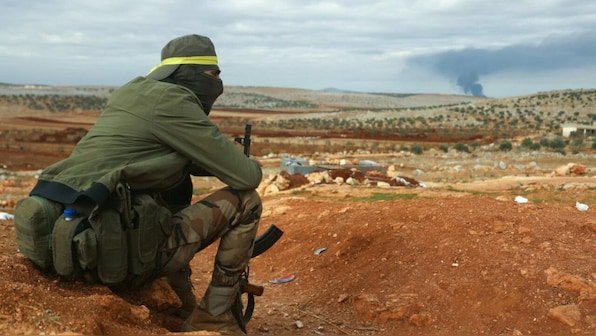
No sooner than Israel and Hezbollah agreed to a highly fragile ceasefire, large-scale violence erupted in Syria with the onslaught of the Islamist group Hayat Tahrir Al-Sham (HTS) and the Free Syrian Army, the main rebel group backed by Turkey and the United States. The Middle East continues to boil and flare up. The ongoing attack comes as the largest offensive on Aleppo since 2016, when the rebel forces faced a rout in the northeastern neighbourhoods after a gruelling military operation by the Syrian army with the support of Russia, Iran, and its affiliated proxies.
In the last few days, the rebel forces and HTS have made major advances, cutting off the highway between Aleppo and Damascus. Further, they have captured significantly large parts of Idlib and Aleppo, including strategically sensitive settlements like Urm al-Sughra, Anjara, Kafr Basma, Urum al-Kubra, and Al-Houta. Additionally, rebel factions have captured the 46th Infantry base, the largest military base of the Syrian Army, several tanks, and a stockpile of missiles. Unexpectedly, the Syrian army collapsed within hours, and rebels with the overwhelming presence of Al Qaeda-linked Islamists swept through Aleppo, pushing towards the South. In the clashes, the death toll has risen to more than 200, and hundreds of civilians have fled the cities.
What’s behind the surge?
The frequent eruptions of conflicts in West Asia amidst a changing world order hardly surprise anyone. Yet, the fundamental question arises: What are the reasons for the new momentum in the conflict, which entered a stalemate after the Russia, Iran, and Turkey-brokered 2020 ceasefire agreement between the rebel forces and the Assad regime?
A closer scrutiny of the various factors driving the recent spurt reveals a multi-layered nature of the conflict, where the vested interests of overarching global geopolitical actors, regional players, and Islamist groups converge. Additionally, the worsening humanitarian crises and economic situation play a crucial role in rejuvenating the violence in Syria.
Content retrieved from: https://www.firstpost.com/opinion/how-al-qaeda-linked-groups-fresh-surge-in-syria-will-embolden-global-jihad-13840710.html.




